Top 7 Most Powerful African Kings In History
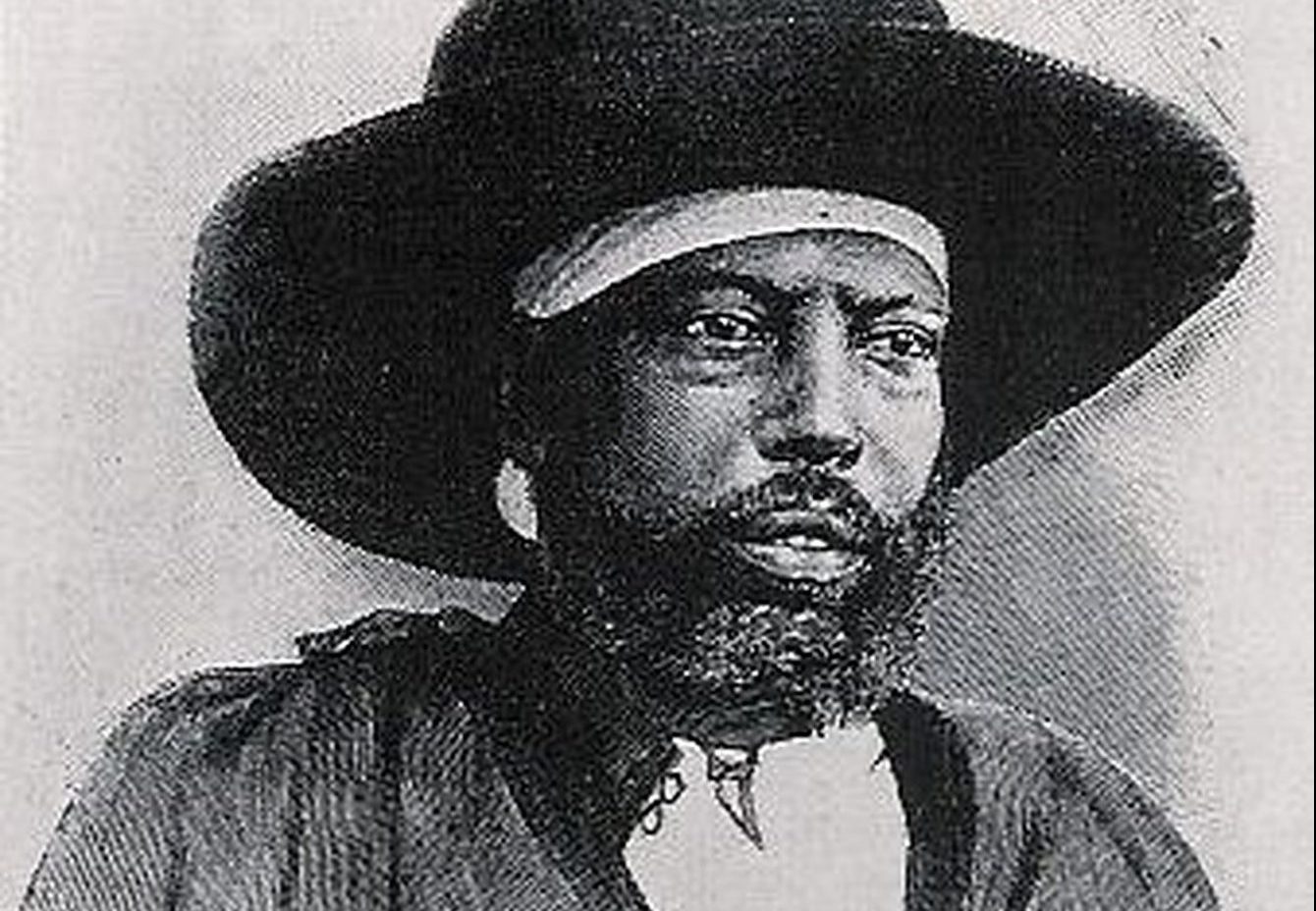
There have been hundreds of significant African kings, queens, sultans, and other rulers throughout the continent's incredibly rich and varied history.
Throughout the centuries, there have been leaders and emperors. All of them, however, are not as widely known to us as they ought to be. There are so many inspiring tales and lessons to be learned from them, from mighty warrior monarchs to significant political reformers.
Most Powerful And Influential African Kings In History
- Sunni Ali Ber
- Askia the Great
- Shaka Zulu
- Idris Alooma
- Behanzin Bowelle
- Menelik II
- Mansa Musa
1. Sunni Ali Ber
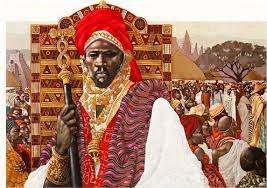
The first monarch of the Songhai Empire and the 15th head of the Sunni dynasty was Sonni Ali, also known as Sunni Ali Ber. Many cities were taken under Sunni Ali's army and cavalry and later fortified, including Timbuktu in 1468 and Djenné in 1475. In particular, individuals from the Sankore region who had ties to the Tuareg that Ali had driven out of the town in order to seize control of it, were subjected to his repressive policies towards the intellectuals of Timbuktu.
The Songhai Empire, which succeeded the Mali Empire and the Ghana Empire before it, expanded to heights greater than the Mali Empire's during his rule.
At a time when the conventional coexistence of several faiths was under threat, Sunni Ali ruled over both urban Muslims and rural non-Muslims. Some authors refer to him as an openly or nominally Muslim due to his allegiance to African animism and professed Islam.
READ ALSO » Top 10 Most Powerful Kings In Nigeria
There are two accounts of Ali's passing: Ali drowned while crossing the Niger River in late 1492, according to the Tarikh al-Sudan. Oral traditions claim that Askia Muhammad Ture, the son of his sister, was responsible for his death.
Ali's son Sunni Baru succeeded him, but Askia successfully ascended to the throne after challenging Baru because he was not regarded as a devout Muslim.
2. Askia the Great
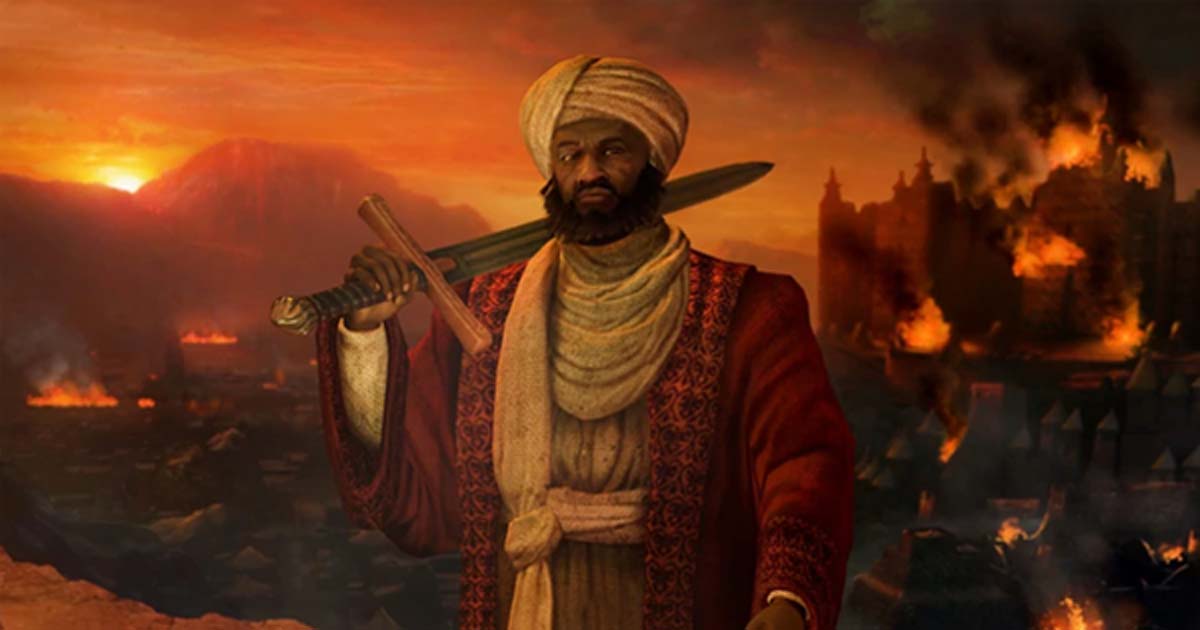
Askia Muhammad, also known as Muhammad Touré, was an emperor, military leader, and political reformer of the Songhai Empire in the late 15th century. He was born in Futa Tooro as Muhammad Touré. The Soninke people were the ethnic group of Askia the Great.
Askia Muhammad expanded his dominion, making it the biggest in the annals of West Africa. At its height under his rule, the Songhai Empire included most of the western region that had been a part of the Songhai empire as well as the Hausa states all the way to Kano (in modern-day Northern Nigeria). His initiatives led to the rapid growth of trade with Europe and Asia, the establishment of numerous schools, and the acceptance of Islam as a fundamental component of the empire.
The empire was then expanded and consolidated under Askia's direction from Air in the northeast to Futa Djallon in Guinea, and from Taghaza in the north to the borders of Yatenga in the south.
Instead of structuring the empire along Islamic principles, he modified and enhanced the conventional model by putting in place a bureaucratic governance structure unmatched in Western Africa. In addition, Askia built organized tax systems, standardized trade measures and laws, and started police trade routes. In 1528, his son Askia Musa overthrew him.
Ten years later, in 1538, he passed away and was buried in Gao, modern-day Mali, beneath an earthen pyramid topped with wooden spikes. His tomb is still standing and has grown to become one of West Africa's most revered mosques.
3. Shaka Zulu
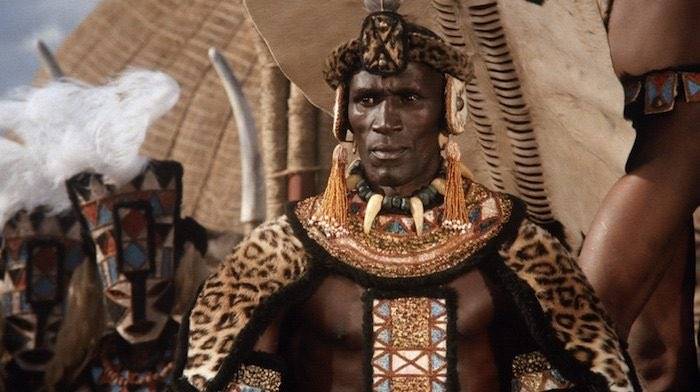
READ ALSO » Top Five (5) Most Powerful African Passports 2024
In 1787, Shaka kaSenzangakhona was conceived into the little Zulu clan of South Africa. His mother, Nandi, was the daughter of the chief of a neighbouring clan, and his father was the Zulu chief. Shaka's father expelled his mother and him from the community when he was still a little child, and they soon joined the clan of a strong chief named Dingiswayo, where Shaka received his military training.
Shaka assumed leadership of the neighboring tribes after Dingiswayo's passing and rose to prominence as the region's most potent figure. Shaka kept preparing and expanding his army. He took control of many of the neighboring chiefdoms. He formerly commanded an army of about 40,000 well-trained warriors.
Shaka was devastated by the loss of his mother, Nandi. He made everyone in the kingdom weep for her. He gave the directive that no new crops should be grown for a whole calendar year. He further requested that all pregnant women be slain and that milk not be used for a year. He murdered almost 7,000 people for failing to show sufficient grief for his mother.
The populace was prepared to revolt because they had had enough of Shaka's brutality. Shaka was murdered in 1828, and his body was interred in an unmarked grave.
4. Idris Alooma
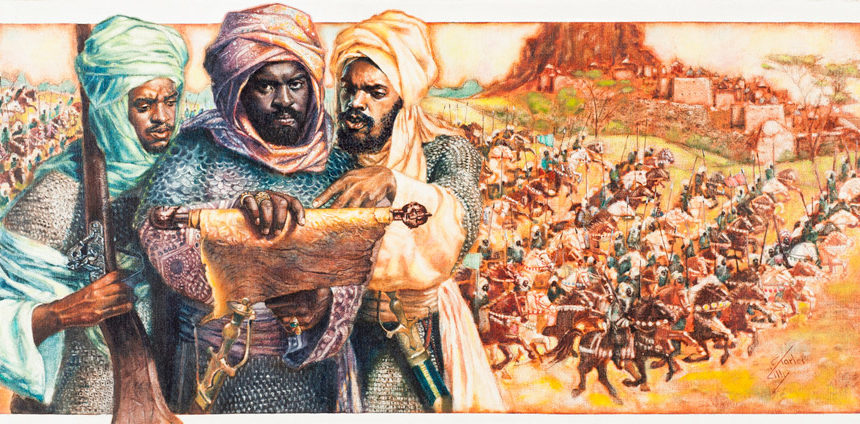
Idris Alooma, the King of the Kanem-Bornu Empire, which was primarily located in modern-day Chad and Nigeria, was unquestionably the greatest ruler of the Central African empire of the Kanem-Bornu Dynasty. Under his authority, Kanem-Bornu, a great statesman, attained the pinnacle of his power. The military prowess, administrative reforms, and Islamic piety of Alooma are remembered today.
The Hausa to the west, the Tuareg and Toubou to the north, and the Bulala to the east were Alooma's main foes. His triumphs in more than 1,000 battles and 330 wars are lauded in an epic poem.
Under Alooma, Kanem-Bornu was a powerful and affluent nation. Trade, taxes, and tribute were the main sources of government income.
Idris Alooma emerged as the unchallenged leader of the city's Muslims when Songhai fell in 1591. The Empire later evolved into the Bornu Caliphate, the most powerful Islamic state in Africa. The Caliphate covered the all of Africa. Ngazargamu, the name of the capital city, was one of the biggest cities on Earth.
READ ALSO » Top 10 Most Powerful African Countries
In 1658, Ngazargamu was home to about a quarter of a million people. 660 streets existed. Many of them were wide and immovable, which was typical of town layout. The high streets' architecture was surrounded on both sides by trees that provided shade. Such structures had to be constructed on a never-before-seen scale, and the craftsmanship was of a level comparable to that of Europe at the time.
5. Behanzin Bowelle
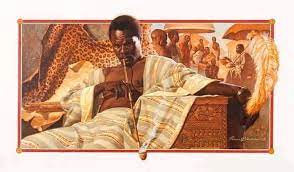
Béhanzin Hossu Bowelle, who was born in Abomey in 1844, reigned as Dahomey's ninth king from 1889 to 1894. One of the most powerful nations in West Africa, Dahomey derived its strength on trade and its strong army. At the time, Béhanzin skillfully commanded a force of 5000 amazon women and 15,000 men.
Following the tragic death of his father, Béhanzin became king and prepared for battle when the French took control of Cotonou in February 1890. His men launched a simultaneous two-pronged offensive against the French, engaging them physically in Cotonou and economically in Porto Novo by destroying the palm groves. To annex Dahomey before the British or Germans, France was, nevertheless, adamant. Knowing that he would have to preserve his independence, Béhanzin kept bolstering his army in preparation for another round of combat.
In 1868, his father, Glèlè, had signed a treaty with France, which he declared void, and it was this declaration that started the conflict. A Senegalese mulatto named Colonel Alfred-Amédée Dodds was dispatched to battle against Béhanzin in 1894 and ultimately beat him. He was supported in this battle by the formidable French military.
Without executing any formal declaration of national surrender or treaty, Béhanzin turned himself in to Dodds because he did not want to see his people slaughtered. After that, France took over the security of Dahomey, and it eventually became a colony of France. While living in exile in Algeria, Béhanzin passed away in 1906.
6. Menelik II
From 1889 until his passing in 1913, Menelik II ruled Ethiopia as its emperor. By 1898, the process of territorial expansion and the establishment of the modern empire-state had been completed to the best of his ability both within and externally. Menelik is also recognized for leading Ethiopian troops in the First Italo-Ethiopian War against the Kingdom of Italy, when he won the critical Battle of Adwa.
With the assistance of important ministerial advisors, Ethiopia under Emperor Menelik underwent a transformation. Menelik gained a lot of fame outside his own country as a result of his victory over the Italian invaders.
The determination of Ethiopia's borders with the neighboring colonies and diplomatic presence at his court were two ways that external powers after the Battle of Adwa acknowledged Ethiopia's independence.
Invading the kingdoms of Kaffa, Sidama, Wolayta, and other nations, Menelik stretched his empire to the south and east. The first Cabinet of Ministers was founded by Menelik later in his reign to aid in the governance of the Empire. He appointed dependable and well-liked nobles and retainers to the first Ministries. Long after he passed away, these ministers continued in their positions, holding them during the brief rule of Lij Iyasu and into the reign of Empress Zewditu.
7. Mansa Musa

Mansa Musa of Mali embarked on his well-known pilgrimage to Mecca in the 17th year of his reign (1324). This journey was what first made the world aware of Mali's incredible wealth. This royal representative visited Cairo and Mecca. Mansa Musa led an impressive caravan of 60,000 men, including a personal retinue of 12,000 slaves, all dressed in brocade and Persian silk, from his capital of Niani on the upper Niger River to Walata, present-day Mauritania, and then on to Tuat, now in Algeria, before traveling to Cairo.
On horseback, the emperor rode in front of 500 slaves who each carried a staff decked with gold. Mansa Musa also had an 80-cameleon baggage train that was hauling 300 pounds of gold on each camel.
Mansa Musa: The Powerful African King And Richest Man in History
Twelve years after the emperor had visited, the historian al-Umar went to Cairo and discovered that its citizens, who number almost a million, were still singing Mansa Musa's praises. The emperor was so wasteful in his spending that he flooded the Cairo market with gold, which caused such a drop in its value that the market had not yet fully recovered 12 years later.
Timbuktu developed into a very significant commercial hub under Mansa Musa, with caravan connections to Egypt and all other significant trading hubs in North Africa. Timbuktu was genuinely made the hub of West Africa, if not the entire world, at the time by Mansa Musa, who not only extended Mali's frontiers from the Atlantic to Nigeria but also established a massive network of trade through salt and gold.
